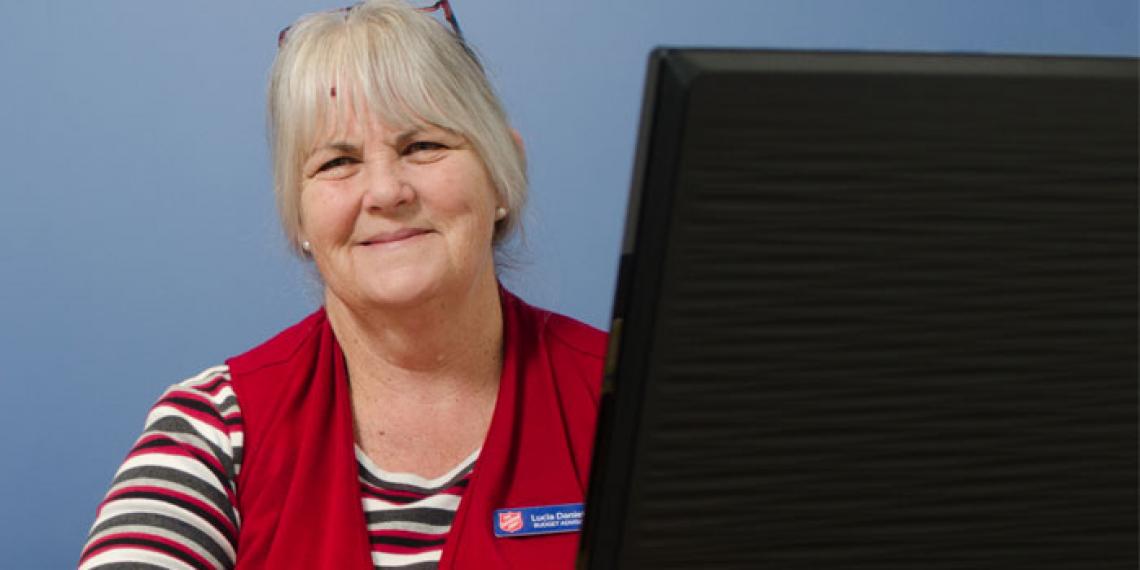You are here
Making a difference

For Hamilton Budgeting counsellor Lucia Daniels a chance conversation with a Salvation Army officer led to the job she’d been looking for to make a difference.
I decided I wanted to work in budgeting when I had a conversation with an old colleague while cleaning their Work and Income (WINZ) office.
She told me about the government’s move to have clients undertaking budgeting. I knew instantly that ticket had my name on it and within a month I started the training course.
I became a full-time budgeter with the Salvation Army in 2011. I had approached another budgeting service with no joy and was heading to the bus stop when I met a Salvation Army officer standing outside the church and she told me they were looking for budget advisers.
My father grew up in Auckland during the Depression and always told me that without the Sallies and the horse-drawn soup carts they would have starved. My grandmother was eternally grateful for the work of the Sallies, as all her eight children survived the Depression. If my work helps clients in any way, I believe in a small way I’m repaying the gift the Sallies gave me.
When clients come to me, most don’t have enough money in their budget for food, whether from credit over-commitment, reduction in income, family breakdown, relocation, or just insufficient income for rent, power and food.
Their first appointment can take up to two hours, working out their needs and goals.
Clients often feel ashamed and use the word ‘failure’. By setting goals we create a focus that gives hope. It’s important for clients to know there’s someone on their side who wants to help.
A budget to me is a plan—you start with a draft, then go through and ask: ‘We have to find this much money, is there anything in here that can be changed?’ When nothing is left to change, we consider food parcels, insolvency applications and KiwiSaver withdrawals. Many clients don’t know their WINZ entitlements, so I try to educate them about those.
I expect one change from each client, each time I see them. Budgeting requires tenacity and practise. Through small steps, fine tuning the plan as skills are grasped, they regain a measure of control. My life’s experiences have helped prepared me for this job and I seldom ask a client to change something I haven’t.
I work with integrated case managers at WINZ, with Housing New Zealand, and occasionally the Tenancy Tribunal. Sometimes I’m also asked to attend Strengthening Families meetings.
Once a client achieves a balanced surplus budget, our assistance slowly reduces. Clients know they’re welcome to return if they need. If they do, the same process starts again—always at a faster rate.
I’m passionate about contributing to make the world a better place. I love my work and seeing clients empowered. When I see clients come to me with something they’ve accomplished, it makes all their hard work worth it.
by Lucia Daniels (c) 'War Cry' magazine, 17 October 2015, pp9.
You can read 'War Cry' at your nearest Salvation Army church or centre, or subscribe through Salvationist Resources.